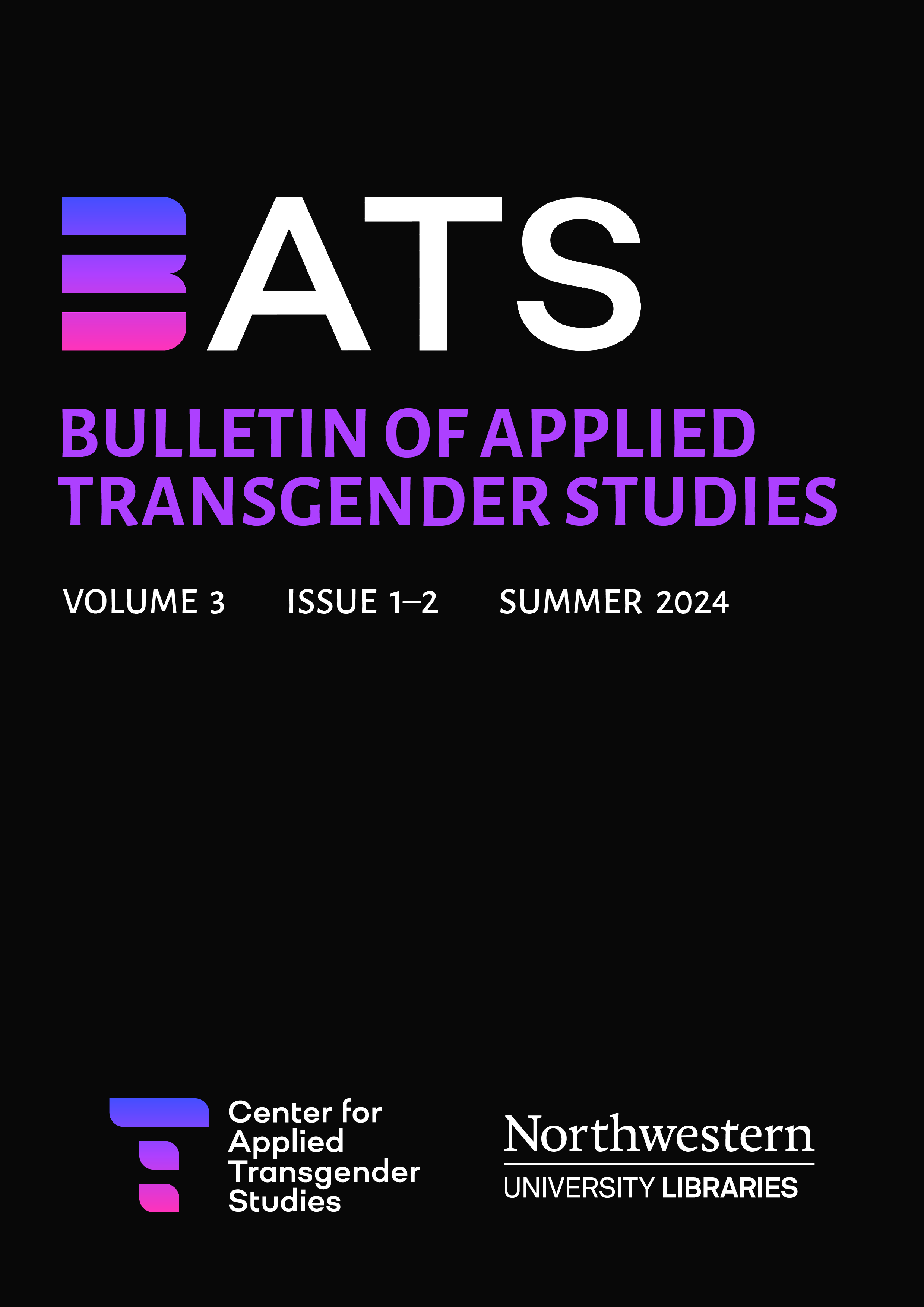Prioritizing Trans Autonomy over Medical Authority in Gender-Affirming Care: The Role of Risk and Uncertainty
Kai Jacobsen
Historically, gender-affirming medical care has been provided through an assessment-based model of care that prioritizes the clinician’s expertise and authority over the trans individual’s desires or lived experience, whichhas been widely critiqued by trans communities. More recently, informed consent approaches that de-emphasize formal mental health assessments are becoming increasingly common in gender-affirming care. However, previous research has found that many gender-affirming care providers continue to practice gatekeeping despite using the language of informed consent. In this article, I analyze the tensions between medical authority and patient autonomy in the recently updated 8th edition of the World Professional Association for Transgender Health (WPATH) Standards of Care (SOC-8). I find that while the SOC-8 generally supports informed consent models, when faced with heightened risk or uncertainty, the SOC-8 reverts to an assessment-based model of care that reinforces medical authority and compromises trans people’s autonomy. I argue that without deconstructing the assumed authority and expertise of healthcare providers, we cannot achieve fully equitable and accessible gender-affirming care. Specifically, gender-affirming care providers must practice epistemic humility and value trans peoples’ lived experience as legitimate sources of knowledge. I suggest strategies for teaching clinicians to value trans people’s autonomy and embodied knowledge.
Original Article
